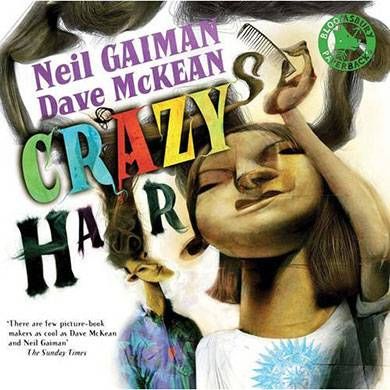
Ground Rules for Writing Great Kids’ Books
I have two small boys, who are significantly less-small than they were seemingly an instant ago. One is six and one is four. The biggest part of my parenting – outside feeding them constantly – has probably been reading aloud to them. These days, that mainly consists of an hour or so of reading Harry Potter every night before bed, with as many of the voices done right as I can keep straight in my head.

My bedtime party trick is, I no longer need to open this book when I read it.
But it wasn’t too long ago that my reading consisted of a huge number of picture books. I have whole shelves creaking under the weight of ’em. Many of them are fantastic, particularly the Halloween ones, but I’ve now read so many of them, I am fully qualified to Have Opinions About Them.
Always Include a Definite END to Your Book.
Once upon a time, someone gave us a children’s picture book. I no longer remember what it was called. Only that it was a dopey, boring poem and drawn by someone with crayons clutched in, I assume, their toes. It wasn’t good! But I had trained a love of books into the kids very early on, so we had to read it. On the middle page of the book, the text spun in a circle, so you had to rotate the book and then keep going. Problem was…it disoriented my then-tiny son. So we’d reach the end of the book, and the spin had made him think we were back at the beginning or something. To him, it seemed like an infinite book that we never reached the end of. There was no way to reach the end to his satisfaction, and thus there were tears. The book vanished quickly thereafter.
Don’t do this, authors. END the book. And don’t include a perky note at the end that says Let‘s go back to page one and read this again! Children take that literally, and the parents really need them to sleep or something.
Please include WORDS in your book.
This feels like a weird one, doesn’t it? The biggest example of this is a book called Goodnight Gorilla. It is an absolutely adorable book and one of our favorites…but in a thirty page book, I think it has ten words? And they’re all just the word goodnight repeated over and over. Most of the pages are just pictures. Adorable pictures, mind you…but two things happen. Either, one, I’m done reading the book in as long as it takes me to flip the pages for the kids in a sort of slideshow. Or two, I wind up narrating what’s happening in the pictures. There’s nothing else for it. It was a favorite for being read aloud, except it didn’t work for reading aloud.
Know Who Your Audience Is
POP QUIZ! Who are you writing kids’ books for? If you answered “for kids,” then you paleontologists have identified you as a wrongosaur! Also you have been extinct for millions of years. Bummer.
You are writing kids’ picture books for the parents, not the kids. The kids are the easy part. Not because kids aren’t discerning and not because you can just park them in front of any old crap (parents who think these things about their kids make me truly sad) but because what kids are getting out of a book is not necessarily what you might think. That’s why a kid might want to hear the same book over and over, why they might enjoy a book that’s seemingly simple and boring (OR way out of their league. My youngest used to climb on my lap and contentedly listen to me reading anthropology texts out loud to him).
The reason you need to write for the parents is not only out of kindness to a poor tired adult who is going to have to read this book a billion times over the next few weeks, but because if you can make the parent enjoy the book repeatedly, that enthusiasm and enjoyment is going to transfer to their readings of the books. That’s the simple reason, I think, why my kids enjoyed hearing over and over the specific books they did. They were, on the whole, the books I enjoyed re-reading. The books I could lend rhythms and enthusiasms to, could bring silly voices and expressions into. One book my kids and I loved rereading featured a simple enough story about a mouse slipping out to experience Halloween…but we kept coming back to it, because the illustrations were these full-page, hyper-detailed, jaw-dropping pieces of work. We enjoyed looking at them, even as we were going through the motions of a sweet-but-simple story.
…
There you have it. A few very simple ground rules. This is a very high-pressure situation, and I hope you pay attention to the help I’m trying to offer you. The fact is that the parents aren’t sleeping and have possibly lost their minds and must be treated very kindly. Not just out of basic humanity, but because they might snap and also now they’ll have a book with your name on it. I’m just saying.
_________________________
Sign up for our newsletter to have the best of Book Riot delivered straight to your inbox every week. No spam. We promise.
To keep up with Book Riot on a daily basis, follow us on Twitter, like us on Facebook, , and subscribe to the Book Riot podcast in iTunes or via RSS. So much bookish goodness–all day, every day.
















